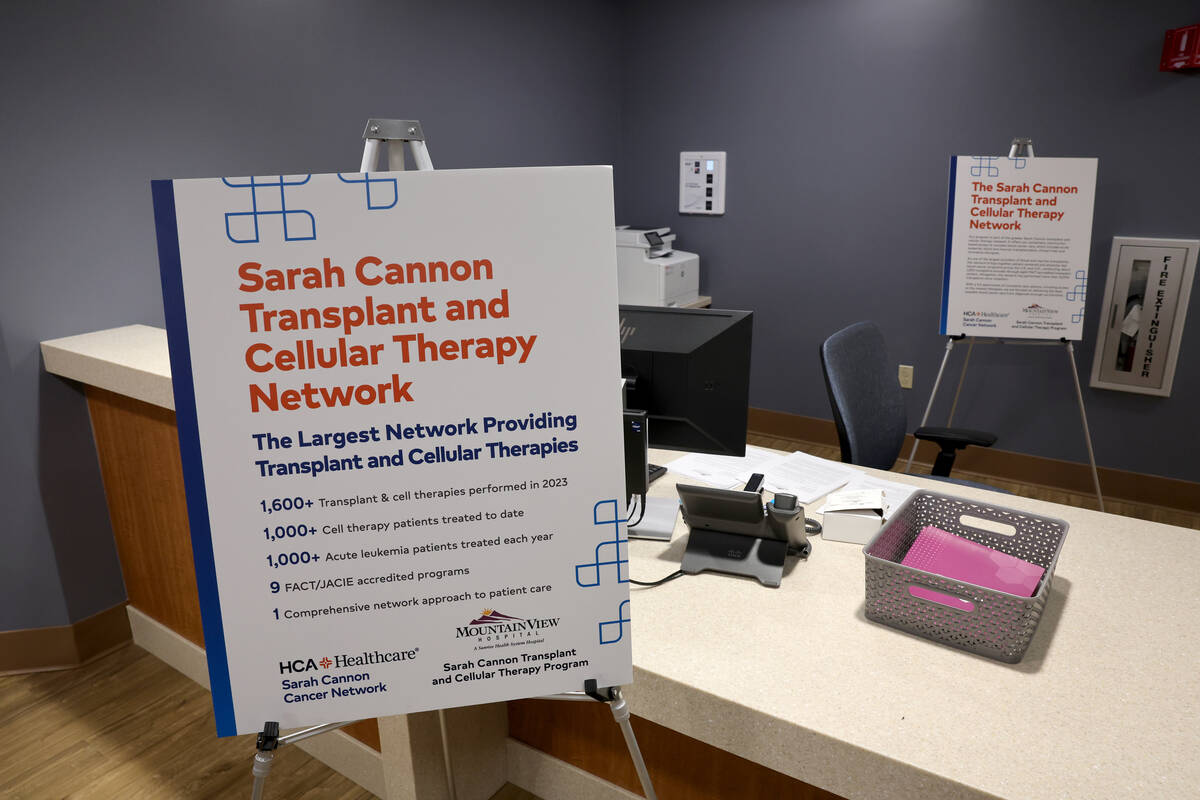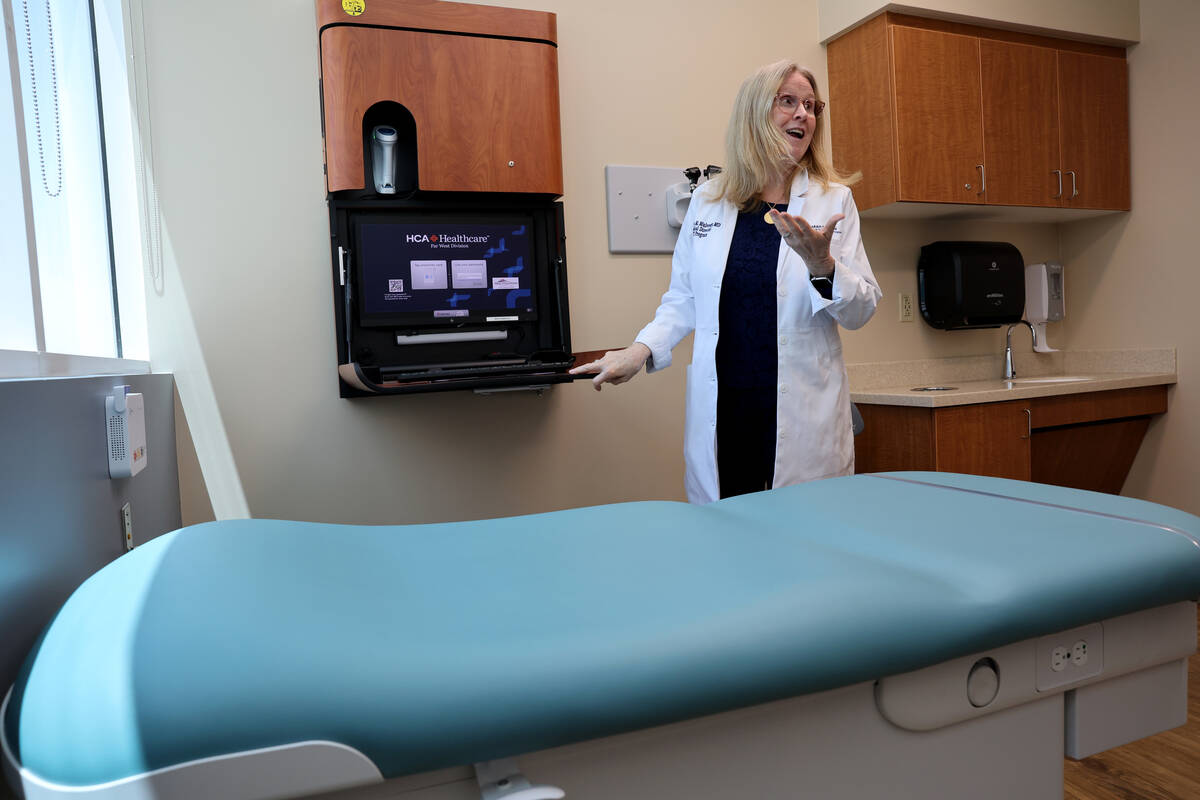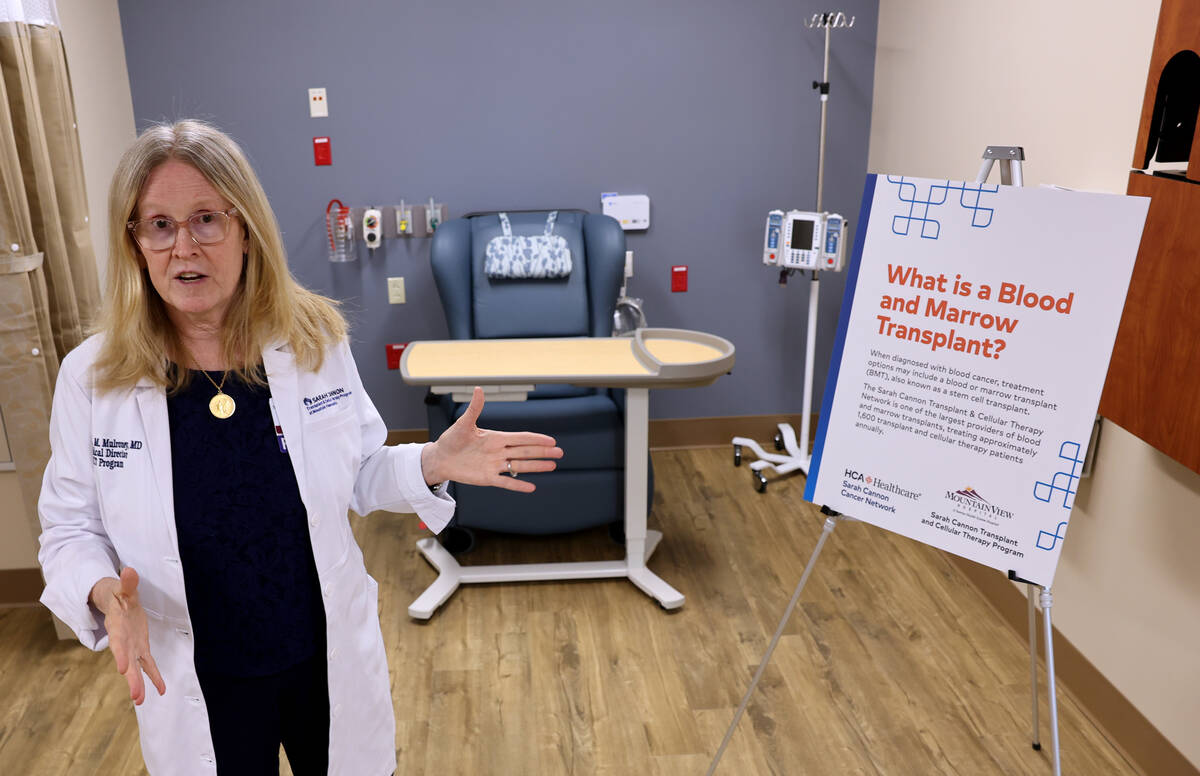First-in-Nevada cancer treatment center opening at Las Vegas hospital
A first-in-Nevada cancer treatment center is opening at MountainView Hospital.
MountainView Hospital, a member of HCA Healthcare, is opening a first-of-its-kind “day hospital” to treat patients with acute leukemia, certain types of lymphomas and multiple myeloma. Through the Sarah Cannon Transplant and Cellular Therapy Program, patients will no longer have to travel out of state to receive treatment and, most importantly, go home at the end of the day.
The new $3 million, 12,000-square-foot stem cell therapy and transplant center inside the hospital at 3150 N. Tenaya Way includes examination rooms, infusion stations and other specialized rooms for procedures such as bone marrow biopsies. Alongside the center, MountainView is also building a stem cell therapy lab for cell processing and storage.
This is HCA Healthcare’s ninth cellular therapy and transplant program in the country.
“There were patients that needed these types of interventions, and if they could afford to do it, and they had the right type of support, they would have to go out of state to go to California, Utah or Arizona,” said Dr. Carolyn Mulroney, medical director for the transplant and cellular therapy center. “They have to be there for months.”
The stem cell transplant and therapy program at the hospital launched in 2021, with the outpatient center being the next step in patient care. Since launching, the program has completed a total of 80 procedures, including the first CAR T-cell therapies and allogeneic transplants in the state.
CAR T-cell therapy uses the patient’s own cells and “reprograms” them to attack the cancer cells. Allogeneic transplants involve replacing stem cells using a donor.
“Having this day hospital allows us to do certain types of transplant in the outpatient setting, for those patients that meet criteria, and allows them to, at the end of the day go home and sleep in their own bed and eat with their family,” said Maria Rios, administrative director for the transplant and cellular therapy program. “It kind of gives them some normalcy of life. But, by the same token, they’re having to get up to come to the hospital, they’re more active, thereby they do better in their recovery.”
In 2024, 150 patients with those kinds of blood cancers had to leave the state, and 80 chose to not seek treatment at all, according to Rios.
The center will start migrating in patients starting Monday.
Contact Emerson Drewes at edrewes@reviewjournal.com. Follow @EmersonDrewes on X.























